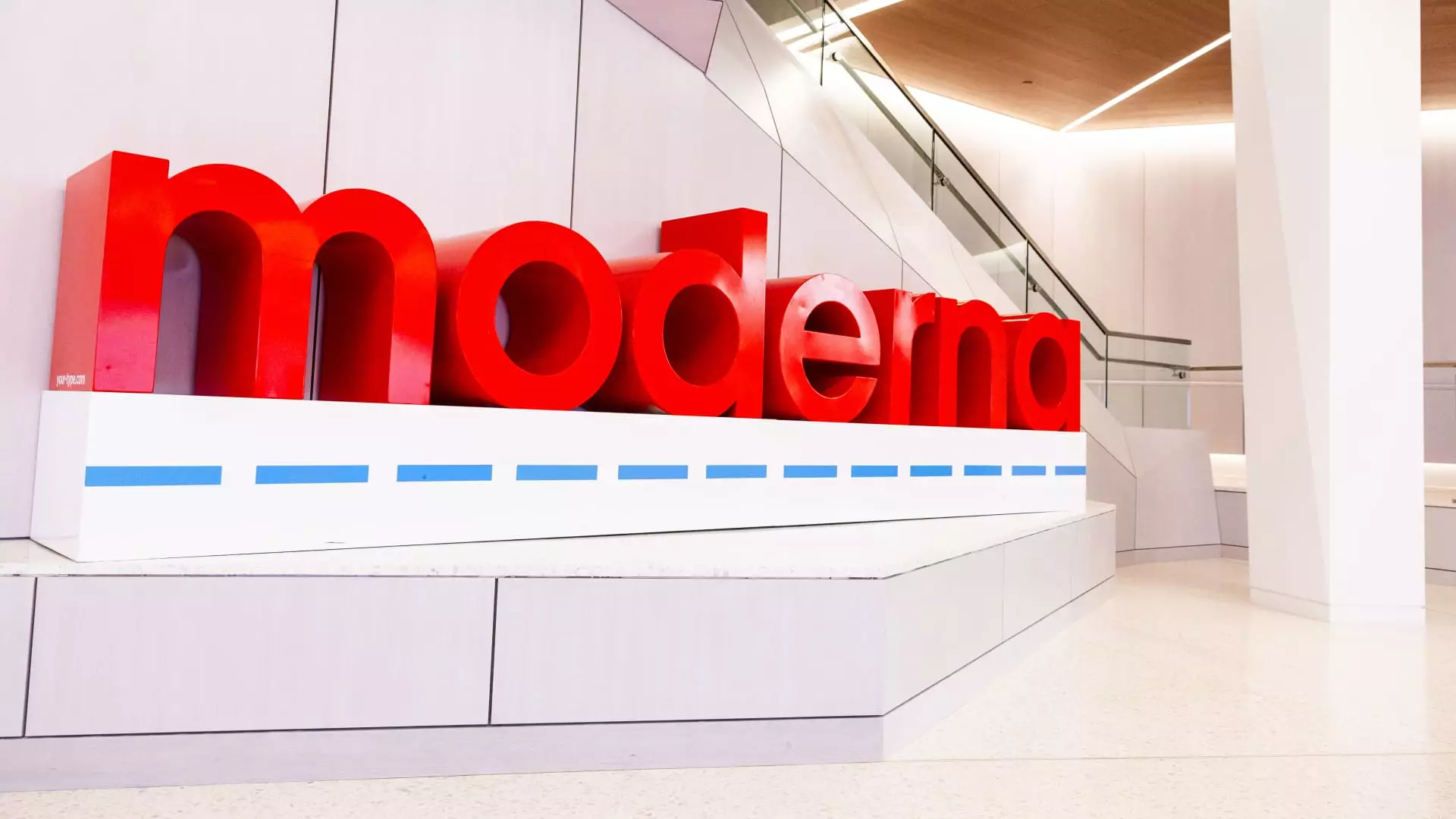Moderna’s recent announcement about its experimental mRNA-based flu vaccine certainly signals a potential shift in the fight against influenza. Their latest phase three trial results revealed that their mRNA-1010 vaccine outperformed a standard flu shot by roughly 27%. On the surface, this sounds encouraging—a more effective vaccine means fewer illnesses and hospitalizations in vulnerable populations, especially those aged 65 and older. Yet, while these figures showcase scientific progress, they also expose systemic weaknesses in our public health approach and regulatory environment.
The important nuance Moderna’s data reveals is that this new mRNA vaccine isn’t just an incremental improvement; it represents a technological leap aiming to replace decades-old flu shots. By harnessing messenger RNA technology, the company is hoping not only to increase efficacy across various influenza strains but also to eventually couple this with Covid-19 protection in a single jab. However, the overall promise is shadowed by the reality that the regulatory landscape has become far less predictable, influenced by recent policy upheavals and politicization.
Regulatory Uncertainty in a Changed Vaccine Ecosystem
The longstanding relationship between vaccine developers and the Food and Drug Administration (FDA) is currently fraught with tension. Under the recent leadership of Health and Human Services Secretary Robert F. Kennedy Jr., whose public skepticism towards vaccines is well known, the FDA is navigating a profound overhaul. This has led to Moderna voluntarily withdrawing their initial application for a combination flu/Covid shot earlier this year in order to incorporate new efficacy data.
This back-and-forth delays market introduction of these promising vaccines and raises a critical question: Are politics and ideology now hindering the ability of public health institutions to protect citizens effectively? The interruptions in the approval process are more than mere bureaucratic slowdowns—they risk disincentivizing innovation within a sphere that has already faced immense challenges during the pandemic years.
Economic Stakes and Market Competition
While the scientific aspect captivates public attention, the looming commercial battle over next-generation vaccines should not be ignored. Moderna is vying against Pfizer and Novavax to corner the market for combination respiratory vaccines that target flu, Covid-19, and potentially RSV in a single administration. Each of these conditions translates to a multi-billion-dollar market segment.
Yet, Moderna’s leadership candidly admits uncertainty about revenue projections for individual products, reflecting a volatile market environment shaped by regulatory risk and shifting public trust. Their strategy to advance both standalone and combined vaccines hinges on securing FDA approvals amidst an uncertain political backdrop—a gamble that could pay off handsomely but also runs the risk of dragging investors and consumers through further delays.
Implications for Healthcare Systems and Patients
Moderna’s ambition to simplify vaccination routines by combining multiple jabs into one dose is appealing in theory. If successful, it would ease logistical strains on healthcare providers, reduce costs, and perhaps increase vaccination uptake among patients who are wary or overwhelmed by current multi-shot regimes. The company argues this could lighten the workload of nurses and doctors and bolster population immunity—a laudable goal as flu hospitalizations in the US recently reached a 15-year high.
Nonetheless, the true test lies in the execution. Even with improved vaccine efficacy, widespread acceptance and effective distribution require consistent confidence from frontline healthcare workers and the public. This trust has been eroded during the past few years by politicized vaccine debates and missteps in communication. Without restoring this fragile confidence, even the most advanced vaccine technologies may fail to achieve their public health potential.
How Innovation Clashes with Political Realities
Moderna’s experience encapsulates a broader challenge facing medical innovation in a divided society. The intersection of scientific advancement and political skepticism threatens to stall progress just as new tools become available. Despite all the hype around mRNA vaccines, the pathway toward adoption remains perilous—especially in an environment where administrative decisions appear influenced by anti-vaccination sentiments at the highest levels.
A center-right perspective might emphasize the necessity of maintaining strong institutions that can shield science and public health from ideological interference. Innovation must be met with a regulatory framework that is predictable, transparent, and based on evidence rather than political convenience. Moderna’s trial success is a testament to private sector ingenuity, but bureaucratic roadblocks and public mistrust illustrate the fragility of this progress.
In short, while Moderna pushes the envelope on battling influenza with cutting-edge technology, the volatile interplay of politics, economics, and public confidence will ultimately determine if these promising vaccines truly transform healthcare outcomes—as they should.

